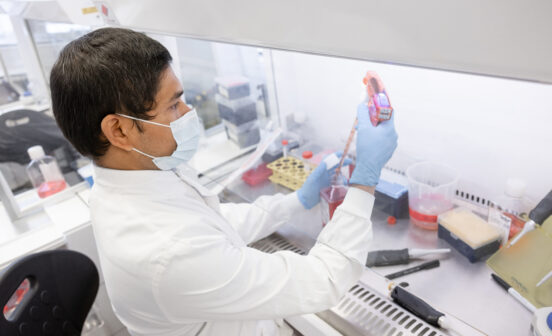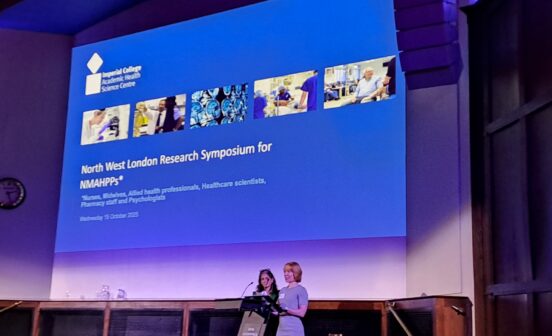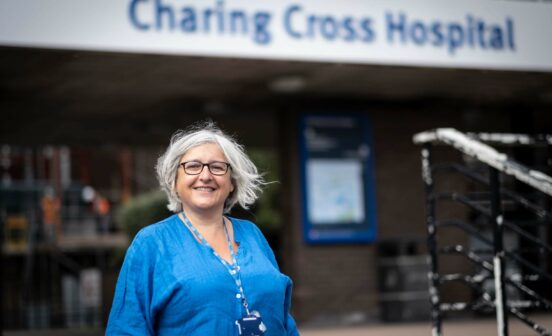Economic ImpactImproved OutcomesOperational ExcellenceService Delivery Changes Improving pathways of care for patients with venous leg ulcers

Venous leg ulcers (VLU) are a major health problem. Such wounds commonly develop due to superficial or deep vein incompetence. When left untreated, inefficient venous drainage from the lower limbs causes venous hypertension and skin damage, resulting in ulceration. People with VLU experience chronic pain, reduced mobility and isolation. VLE costs the NHS more than £2billion a year and utilises approximately 2% of the annual healthcare budget.
Currently, NICE guidance recommends that patients with suspected VLU persisting for more than 2 weeks be referred for specialist assessment by a vascular service. However, this only occurs for a small proportion of patients in the UK.
Layla Bolton-Saghdaoui, a vascular clinical nurse specialist, aimed to understand the reasons for lack of referral for specialist assessment and for poor management of VLU.
Initially funded by a NIHR Imperial BRC / Imperial Health Charity pre-doctoral fellowship and supervised by the BRC funded nursing research lead, her research has since won £289K in NIHR funding (pre-doctoral and doctoral clinical academic fellowships) and has contributed to an additional £256K in NIHR and Charitable funding. Collaborations have been developed with the National Wound Care Strategy (NWCS), Chief Nursing Office for Research and Vascular departments across the UK.
One of the principal barriers to early assessment and intervention for VLU is that community nurses have so far been unable to make direct referrals to specialist care, despite being the primary NHS caregivers for these patients. This work has led to the development of a new nurse-led leg ulcer pathway, including early diagnosis and access to timely surgical intervention. The NWCS proformas are now in use, allowing direct referral from community nurses for the first time. Since the inception of the service, the time from referral to assessment has reduced by more than half. The nurse-led clinic provides a comprehensive service of assessment, wound care plan, bandaging and date for surgical intervention (where appropriate) within one attendance to hospital. Before this service was initiated, patients required up to four separate clinic appointments. As the majority of this patient population are elderly and require hospital transport, this has made a substantial difference to their lives. The specialist nurse (also NIHR funded researcher) provides bespoke education to patients, which has not previously been part of the standard of care.
Layla has provided multiple education sessions to GP practices and other community services. Closer links have been established between primary and secondary care as a result, with direct referral and advice being given quickly to both patients and healthcare professionals. Patients can also self-refer if they wish to.
The research project is ongoing and includes a National survey of healthcare professionals (n=211), Freedom of Information survey (n=39), large qualitative study (n=36 so far) and Delphi study to define pathway components. This work has been disseminated via multiple presentations and publications. It has led to numerous invited talks and International discussions on VLU pathways, including a scholarship to attend the American Venous Forum in 2025 as the only UK nurse.
https://ahsc.org.uk/humans-of-health-research/layla-bolton-saghdaoui/



